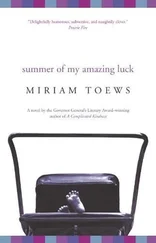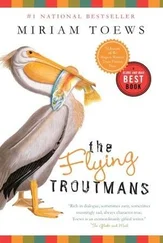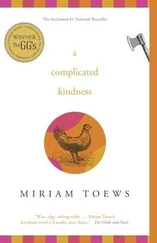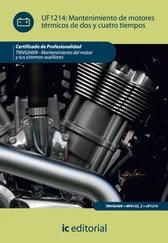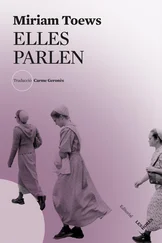“Penny for your thoughts,” she’d say to him when he came home from school, and he’d smile and make something up and she’d give him a nickel or a dime but he never asked her what she was thinking about.
One day Hosea came home early because he had an earache, and he found Euphemia doing a handstand on a kitchen chair, gripping the nubby edge of it with her fingers and bicycling her legs around and around up in the air above her head. When she noticed him staring at her, she slowly brought her legs down to the floor and put the chair back beside the table. Then she’d laughed. “You know how it is, Hosea,” she’d said. No, he didn’t. He had not been amused. He was uncomfortable and alarmed. Why was his mother doing handstands on the kitchen chair? Had she lost her mind? Was she planning to run away and join the circus? Was she a freak? A Buddhist?
He had not been too impressed with that display of athleticism, yet later that evening he tried to do the same thing and could not. Therefore, he surmised at the time, it wasn’t something someone could just do on command, and so she must spend her days practising this sort of thing. This is what she must do while I’m in school, he’d concluded. His question answered. But why?
You know how it is, Hosea, she’d said. Now, as Hosea walked along kicking his piece of snow, he understood. Handstands on kitchen chairs, chunks of ice we can’t let disappear until we’re home. That’s how it is at a certain age. We’re forced to create a challenge for ourselves and meet it. It doesn’t matter what it is.
Actually, Euphemia didn’t have as hard a time living in Algren as might have been expected. Nobody in the Funk family had told anyone about Euphemia being Hosea’s real mother, not even Minty with her big, flapping, eleven-year-old mouth. Even if one of her little brothers had paid attention to the whole brouhaha the night the truth was revealed and then, innocently, mentioned to one of their friends’ mothers, “You know what, my sister Phemie is Hosie’s real mom,” the friend’s mother would have said sweetly, “that’s right, dear, she is, of course she is, now run along and play.”
Euphemia’s father had made arrangements for Euphemia to live in the house on First Street rent free. The owner of the house, in exchange, was given a few acres of land by Euphemia’s father. Euphemia’s father farmed the land but anything reaped from those acres was sold and the money given to the owner of the house.
Just about everybody in Algren, except Leander Hamm — but he didn’t really give it much thought — was under the impression that Euphemia had taken it upon herself to raise this child, Hosea. She was an unmarried so-called mother of a mystery boy. She had committed no sin, of course, because the boy wasn’t hers biologically, they thought. The people of Algren were moved by her generosity and her devotion to the boy. It was a simple story with a familiar heroine, one of their own. A mysterious man on a horse gives Euphemia Funk a newborn baby when she’s outside using the biffy, and Euphemia, a trooper from the start, accepts her lot, smiles at her fate, and raises the boy. Not only does she raise the boy, she raises him to be the mayor of Algren and the man responsible for its claim to fame, a fame that overshadows that unfortunate cockroach story laid out in the encyclopedia, a fame that makes the Prime Minister and the entire nation take note, a fame that comes with being the smallest town in the country.
But at the beginning, when Hosea was a little boy, the townspeople had no idea he would become their mayor. All they knew was that Euphemia Funk, a girl with so much going for her, had sacrificed it all to raise a child alone. And, furthermore, she didn’t seem to mind.
The local churches brought her meals two or three times a week, the wealthier folks in town brought her their ironing and had her do their Christmas baking and sew their curtains and babysit their kids when they went to the city for a night out. Euphemia was almost always paid extravagantly for these jobs and was always promised more work in the future. Euphemia’s neighbours would shovel her walk and trim her hedges and clean her eavestrough and mow her lawn in the summertime. Tom’s mom gave Hosea all of Tom’s old clothes and some new ones, and baked Hosea’s favourite meal, Pork Diablo, whenever he stayed for supper.
At first, when Euphemia’s parents and brothers and sisters would come to visit, her father would stay outside in his truck, picking his teeth, taking apart some tool or another, or having a nap. He would set Euphemia and Hosea up with a house to live in and drive by at night from time to time just to see what he could see, but he would not go inside and pretend nothing had happened. He missed Hosea more than he thought he would, and a very small and non-verbal part of him admired Euphemia for her spunk and her amazing lie that wasn’t really a lie. But he would not set foot in that house. After all, he could make a statement, too. Let Euphemia’s mother and Minty and the boys traipse in like they were going to a Sunday school picnic and not the quarters of an unmarried mother and her bastard son, arms full of cookies and sweetmeat pies and strong coffee, table games and crokinole, good cheer and hugs and kisses. He would sit in his truck. Until one day Tom’s mother who lived right across the street came by and poked her head into Mr. Funk’s cab.
“Have you got an aversion to family gatherings, Mr. Funk? Or are you afraid someone will steal your truck if you leave it alone for a minute? You know, I could have my boy Thomas watch it for you, ha ha ha. Like New York City. You know, where you pay a little boy from the ghetto a nickel to make sure nobody nicks your automobile, or strips the hubcaps—”
“I was just going in,” Mr. Funk growled. “Thank-you for your consideration.”
From that day forward, Mr. Funk dutifully entered Euphemia’s house along with his wife and the kids and set himself up in the dining room as the king of crokinole. He taught the kids, including Hosea and Tom, the combination shot, the straight-to-the-gonads shot, the right-between-the-eyes shot, and the triple lutz. It was the perfect appointment for him. He could avoid conversation and, at the same time, could release his frustration and self-righteous indignation each and every time he curled his middle finger to his thumb and let fire another crokinole rock.
Euphemia and Minty and Mrs. Funk drank coffee in the kitchen and talked and laughed and the words “oh well,” “one more cup,” “what’s the rush” were always punctuated with the vicious crack of a crokinole piece from the next room.
Well, thought Hosea as he walked along kicking his piece of ice, she must have done more than handstands on kitchen chairs. He was just about home now and Lorna’s face came pushing and shoving into his thoughts and the picture of Euphemia upside down churning her long thin legs in the air was gone. Hello, Lorna, I’m sorry, Hosea said to the image of her face in his mind. His piece of ice had made it and just before he went into his house he gave it one last kick up and over his little fence into his neighbour’s yard.
“Hey, Hosea, didja hear?” He whirled around to face his other neighbour, Jeannie, who had appeared on her front steps from out of nowhere.
“What’s that, Jeannie?”
“Veronica Epp,” she said. “She’s had her triplets.”
“Oh?” said Hosea.
“That’s right, three,” said Jeannie. “And they’re all okay. All boys. The last one had to be delivered C-section, you know, but he’s okay, too. Can you imagine giving birth vaginally to not one but two babies, and then on top of all that having to be cut open to have the third?” Jeannie shook her head and stared at the ground.
Читать дальше

